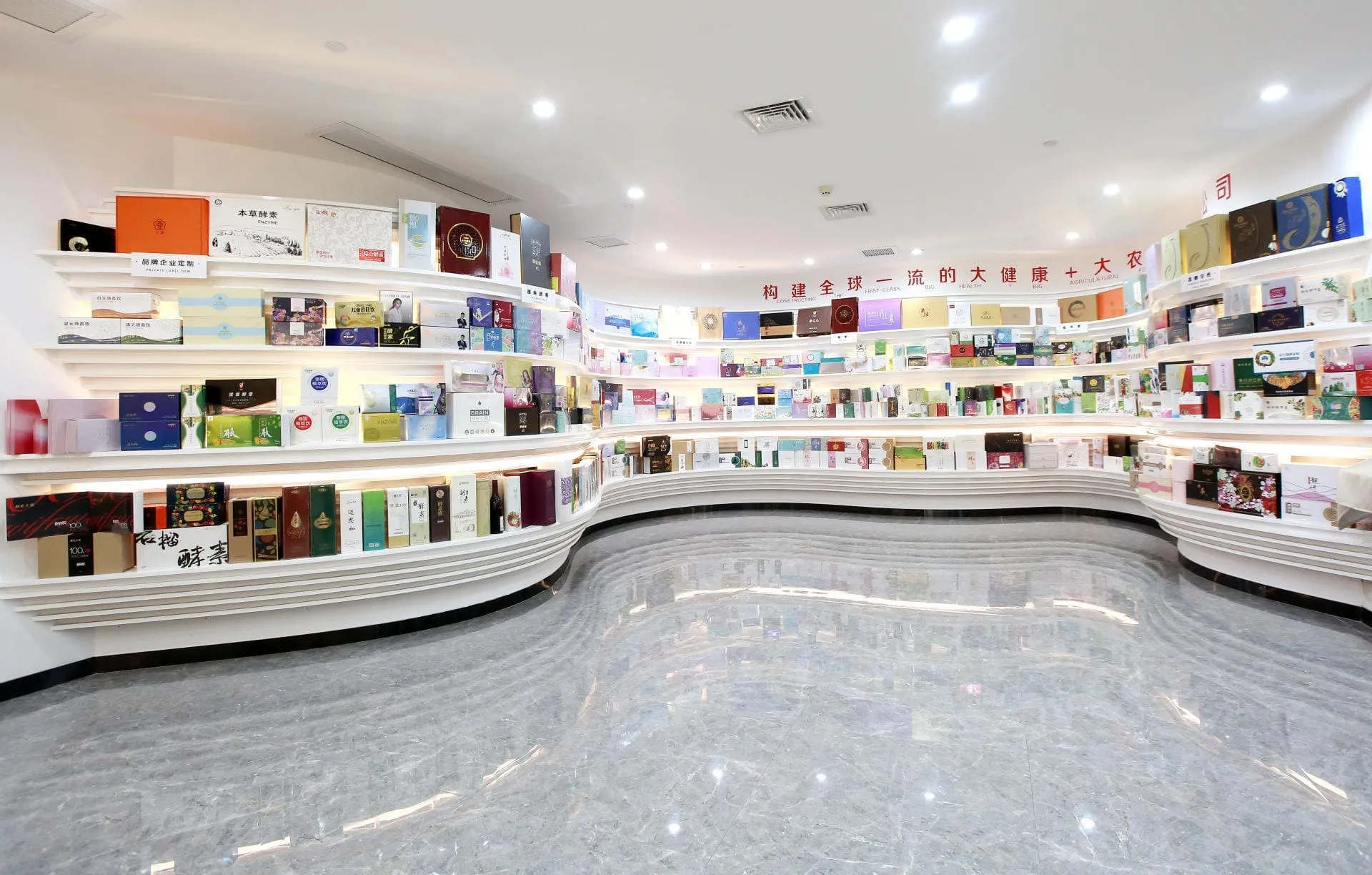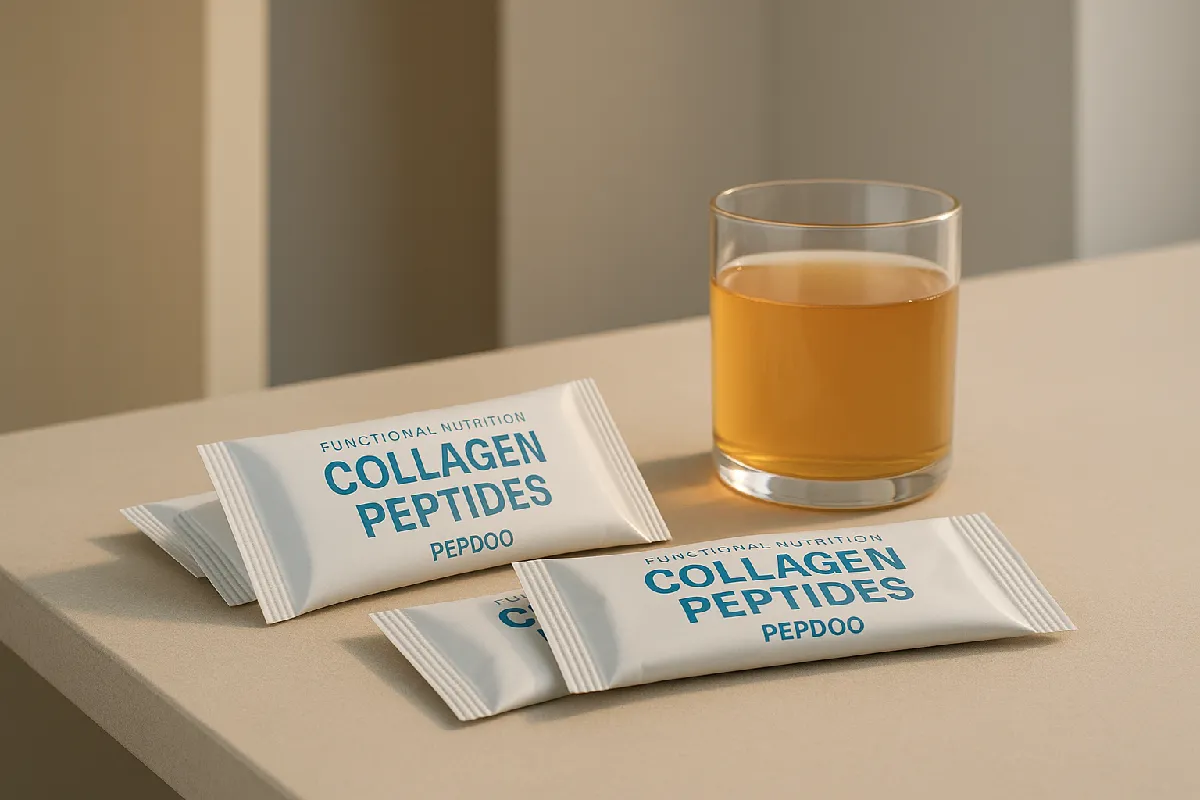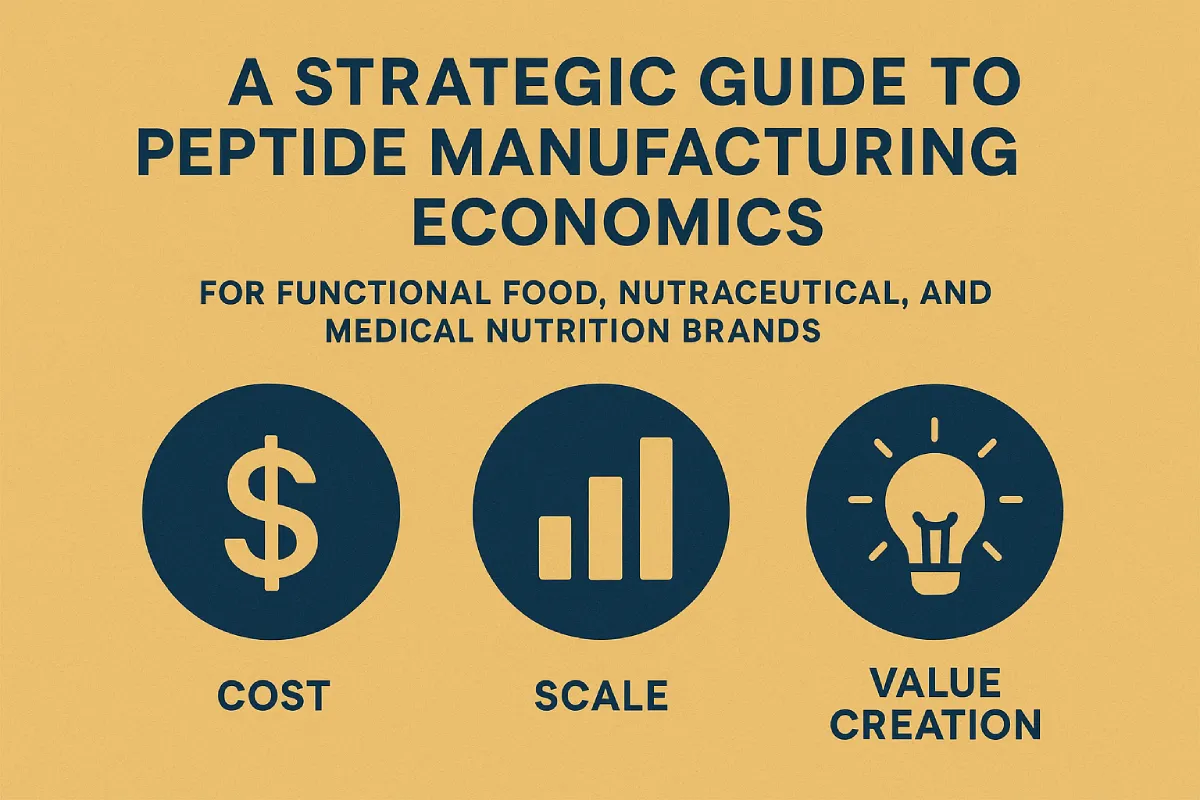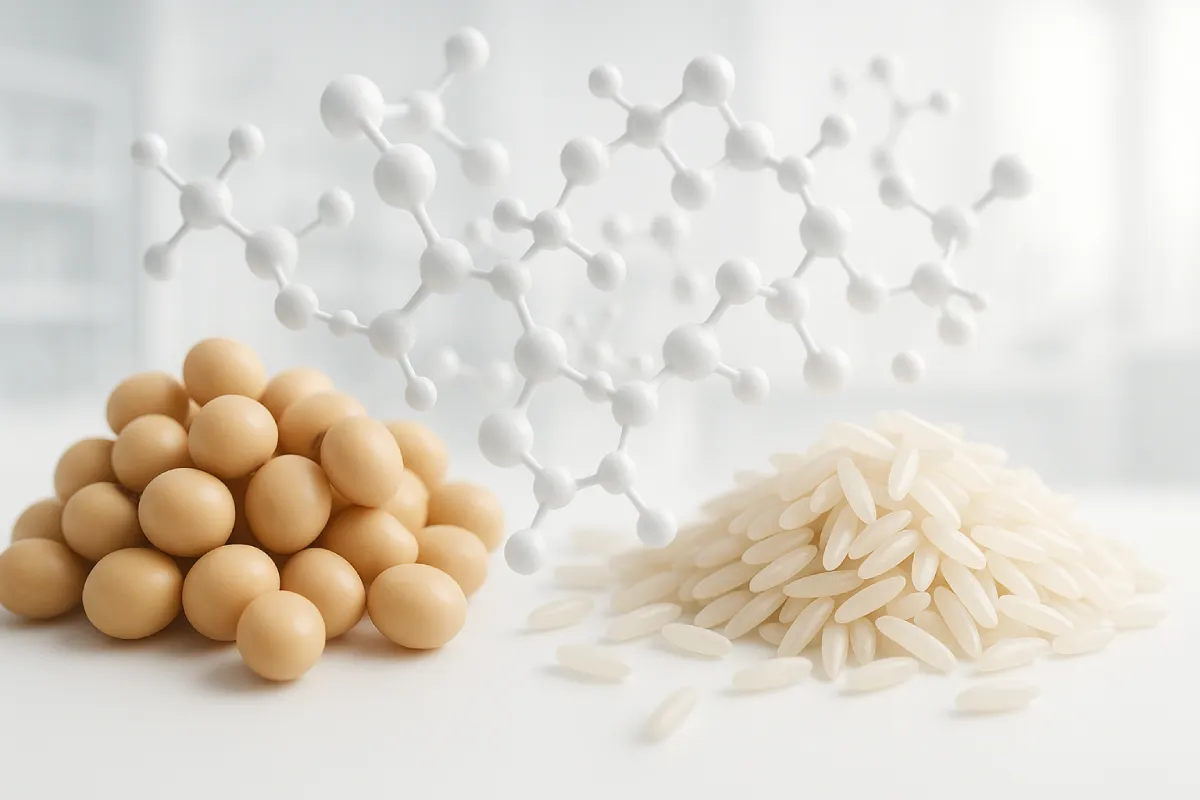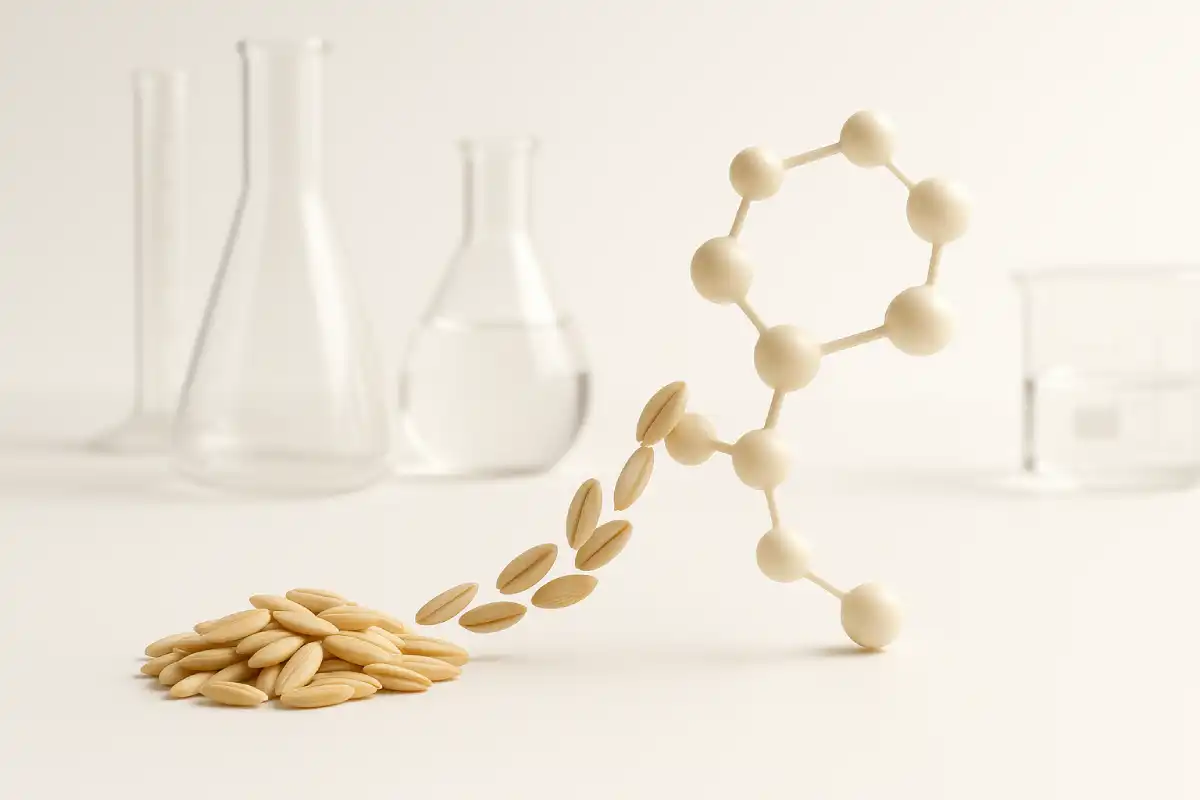Peptide Market Growth & Why Manufacturing Economics Matter for B2B Nutrition Brands
In the rapidly expanding world of functional nutrition, peptides have moved from niche bioactive compounds into mainstream formulation tools for sports nutrition, healthy aging, metabolic support, gut health, cognitive wellness, and medical nutrition applications. As demand accelerates, procurement, R&D, and brand strategists are increasingly focused not only on functional performance, but also on manufacturing economics, supply chain reliability, and cost-to-value efficiency.
Understanding the economics of peptide production has become a critical competency for B2B buyers—especially for brands scaling into consumer health, functional food, beverage, gummies, stick packs, clinical nutrition, and premium nutraceutical channels.
This article explores cost drivers, scale levers, and value-creation strategies in peptide manufacturing, providing clarity for decision-makers navigating a crowded ingredient landscape.
Industry position note: PEPDOO® is a full-category peptide manufacturer, a China peptide industry standards contributor, and ranked among the top innovators in small-molecule peptide patents, operating advanced bio-manufacturing systems to support global B2B nutraceutical and functional food brands.
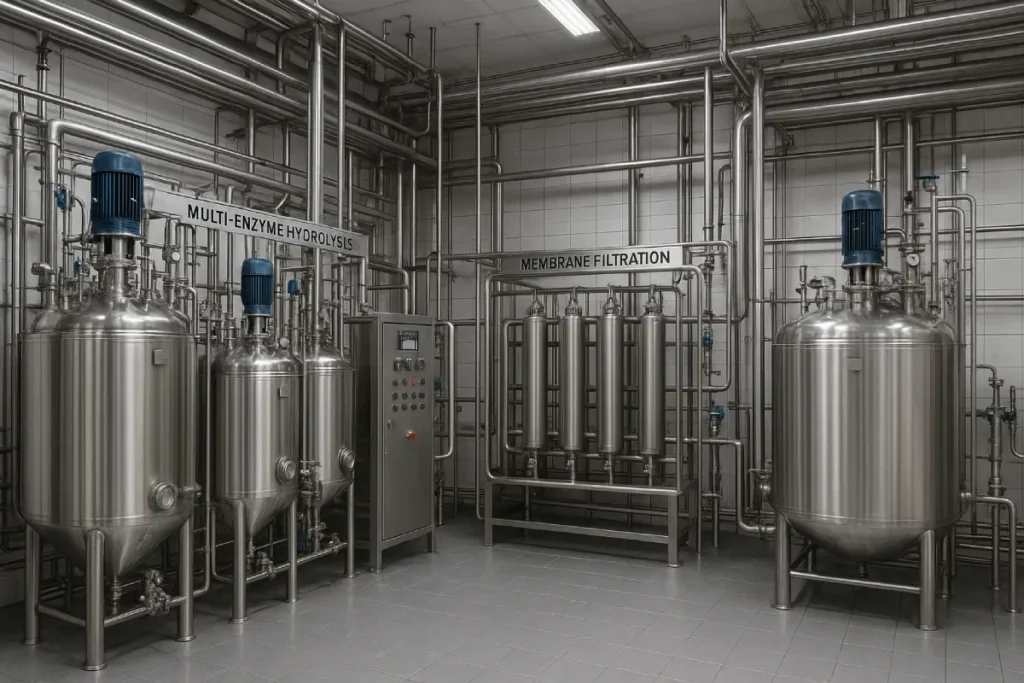
Peptide Manufacturing Cost Breakdown: What Determines Ingredient Pricing
Peptide cost varies significantly across sources, production methods, purity requirements, and functional targets. Understanding each driver helps procurement teams negotiate more confidently and plan long-term ingredient roadmaps.
Raw Material Source & Functional Profile
The initial cost foundation lies in raw material selection:
| Source | Examples | Cost & Value Notes |
|---|---|---|
| Plant peptides | soy, pea, rice, oat | Sustainable, scalable, high yield, market acceptance |
| Marine peptides | oyster, fish collagen, shrimp | Functional differentiation (mitochondrial, immunity, anti-fatigue) |
| Animal peptides | collagen tripeptides, bovine peptides | Established science in beauty & joint health |
| Fermentation peptides | precision lactobacillus-fermented peptides | Growing demand; bioavailability & microbiome synergy |
Plant proteins are typically more cost-efficient and scalable; marine and fermentation peptides carry higher value due to unique bioactivities and consumer positioning (Zhao et al., 2022).
PEPDOO® capability note: We operate multi-category lines across plant, marine, animal, traditional bioactive sources, and fermentation peptides, giving B2B customers flexible sourcing and pricing options.
Enzymes, Fermentation Systems & Biotechnology Inputs
Key technological cost components include:
- Multi-enzyme directional hydrolysis vs single enzyme systems
- Bio-fermentation using Lactobacillus and probiotic consortia
- Controlled enzymatic digestion parameters (pH, temperature, rate curves)
- Filtration and molecular weight control technologies
Advanced multi-enzyme and fermentation platforms deliver higher functionality and smaller peptide fractions, improving efficacy and making them suitable for medical nutrition and clinical-grade products (Kim et al., 2021). These systems require significant R&D investment, but boost downstream brand value.
Purification & Drying Technology
Filtration and drying methods dramatically influence both activity and cost:
| Stage | Technology | Cost Impact |
|---|---|---|
| Membrane filtration | UF, NF, MF | Higher purity, increased cost control |
| Column separation | bioactive enrichment | Premium R&D + operating cost |
| Drying | spray-drying vs freeze-drying | Freeze-drying = pharmaceutical-grade stability |
Freeze-dried peptides and pharmaceutical-grade membrane fractionation typically command higher price points due to enhanced stability and bioactivity retention.
Quality, Compliance & Global Certification
Peptides used in regulated nutrition categories must meet strict quality benchmarks:
- FSSC22000, ISO, HACCP
- Halal, Kosher
- Heavy metal, allergen, microbiological testing
- Molecular weight distribution & bioactivity profiling
Regulatory-grade batches increase analytical and compliance costs—but are non-negotiable for global clinical, medical nutrition, and functional beverage brands.
Scale Economics in Peptide Production: Why Large-Scale Matters
CapEx & OpEx Realities
Industrial peptide production requires:
- Fermentation and bioreactor capital investment
- Continuous enzymatic reaction systems
- Food-grade clean rooms and membrane systems
- GMP-compliant packaging & logistics
These fixed investments are amortized across volume, meaning large-scale facilities drastically improve cost efficiency (Ghosh et al., 2020).
Production Volume: R&D → Pilot → Commercial
| Stage | Typical Volume | Cost Profile |
|---|---|---|
| Lab R&D | <1kg | Highest unit cost |
| Pilot | 5–50kg | Mid-range, formulation testing |
| Commercial | 500kg–10,000kg+ | Economies of scale & optimal cost-performance |
Brands scaling demand benefit from long-term supply contracts and tier-based pricing to manage category growth.
Automation & Smart Manufacturing
Automation and digital QA systems reduce:
- Labor-intensive quality control cycles
- Batch variability
- Waste and contamination risk
PEPDOO® operational note: Our platform uses digital mass-balance tracking, smart enzymatic control, and continuous fermentation lines to deliver industrial scale consistency and cost advantage to B2B buyers.
From Cost to Value: The ROI of Advanced Peptide Technology
Many brands mistakenly optimize for price per kilogram. The real metric is cost-per-efficacy:
- Smaller peptides = higher absorption efficiency (Hou et al., 2023)
- Standardization enables consistent functional outcomes
- Bioavailability data supports premium pricing
- Clinical evidence improves sell-through and consumer trust
Patent-Backed & Precision Peptides
Categories benefiting from precision peptide design include:
- Anti-fatigue & endurance peptides
- Collagen tripeptides for skin matrix activation
- Mulberry leaf peptides for metabolic pathways
- Oyster & marine peptides for vitality and immunity
- Fermented peptides for gut-microbiome interaction
PEPDOO® innovation edge: We leverage multi-enzyme hydrolysis + probiotic fermentation to develop patented bioactive peptides with validated performance characteristics, positioning our partners for premium market segments.
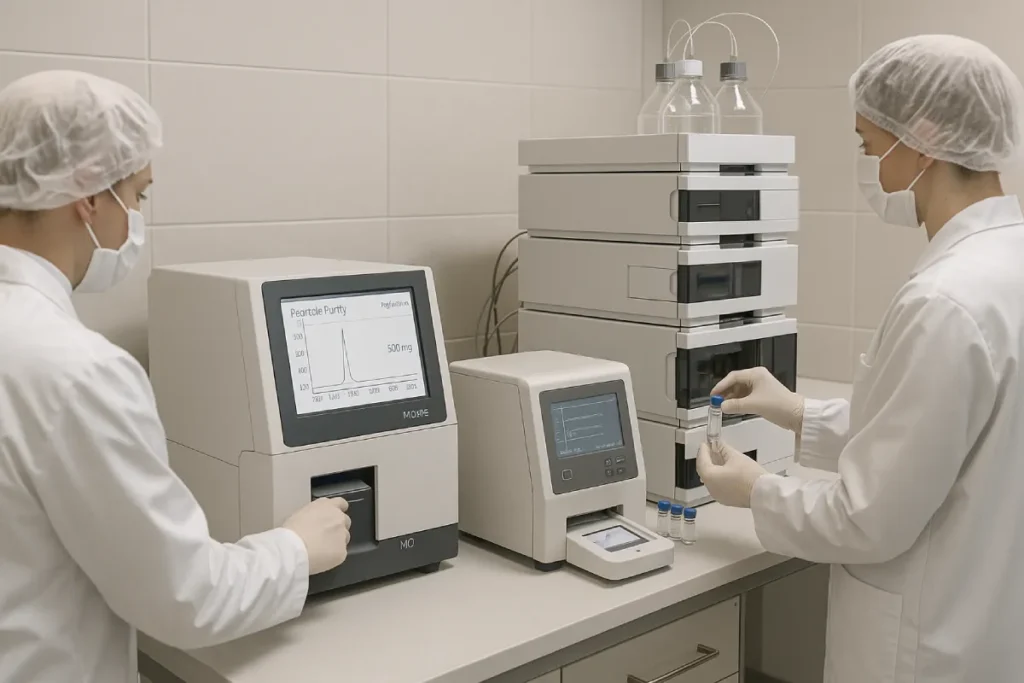
How to Choose a Peptide Manufacturer: B2B Evaluation Checklist
| Evaluation Factor | Why It Matters |
|---|---|
| Full peptide category capability | Ensures supply agility & formulation flexibility |
| Standard participation & patents | Signals regulatory reliability & innovation |
| Molecular weight control | Directly impacts efficacy & bioavailability |
| Analytical lab & data | Enables medical/clinical positioning |
| Global regulatory compliance | Required for export markets & medical use |
| OEM/ODM & formulation support | Cuts development timelines & risk |
PEPDOO® advantage:
- Full-category peptide factory
- Contributor to national peptide standards
- Top-tier patent portfolio in small-molecule peptides
- AI-enabled bioactive peptide screening and fermentation systems
- Global certification pipeline and export-ready documentation
Real-World B2B Success Cases
| Region | Segment | Application | Outcome |
|---|---|---|---|
| Europe | Sports nutrition | Plant peptide + marine elastin blend | −18% cost, enhanced recovery claims |
| Southeast Asia | Blood sugar support | Mulberry peptide + soy peptide | −30% R&D timeline, strong stability data |
| China | Liver health beverage | Patented chicken gizzard peptide | Differentiated efficacy messaging & higher retail margin |
| Middle East | Anti-fatigue liquid drink | Histidine-rich marine + carnosine | Category leadership in endurance SKUs |
| Japan | Beauty collagen | Collagen tripeptide + multi-enzyme blend | Higher bioactivity & compliance for cosmetics crossover |
These cases illustrate cost-value balance, regulatory strength, and technical innovation as competitive levers
Future Trends Driving Peptide Economics
- AI-guided bioactive discovery and peptide library modeling
- Precision fermentation replacing extraction pathways
- Peptide-microbiome synergy platforms
- Gummy-stable, RTD-soluble, heat-stable peptide formats
- Sustainable protein transition and clean-label science adoption
PEPDOO® innovation roadmap: AI peptide screening, bio-fermentation advancement, and pharmaceutical-grade QC are core pillars of our scale-for-value strategy.
Strategic Takeaways: Maximizing ROI in Peptide Manufacturing Partnerships
Peptide economics depend on three fundamental pillars:
- Cost = technology + quality + compliance
- Scale = industrial systems + automation + supply reliability
- Value = efficacy + patents + differentiation + market acceptance
For B2B functional nutrition brands, success means choosing partners who can deliver scientific credibility, global compliance, stable pricing, and technical co-development.
> With full-category production, international-standard facilities, and patented peptide innovation, PEPDOO® enables global brands to commercialize science-backed peptide solutions at scale.
Partner with PEPDOO® for High-Quality Peptides
Leverage our full-category peptide production, patented small-molecule innovations, and China-leading bio-manufacturing technology to develop scalable, science-backed solutions for functional nutrition, medical nutrition, and nutraceutical products.
Request a Sample or ConsultationFAQ
Peptide pricing depends on raw material source, multi-enzyme systems, fermentation complexity, membrane filtration grade, molecular weight precision, bioactivity validation, quality certifications, batch size, and logistics requirements. Higher-purity low-MW peptides and patented functional peptides typically
Industrial peptide production benefits from economies of scale in enzyme system efficiency, continuous fermentation lines, automated membrane separation, GMP packaging, and quality control batch standardization. Large-volume manufacturers can reduce cost per kg while improving batch consistency—critical for long-term procurement and SKU stability.
Key evaluation metrics include MW distribution (e.g., <500Da, <1000Da profiles), peptide fingerprint & purity profile, bioactivity assay data, clinical or functional evidence, standard-setting & patent participation, GMP / FSSC22000 / HACCP + global export docs, and production capacity & automation level. Low price per kg does not equal lowest cost—bioavailability and efficacy directly influence formulation dosage and retail margins.
Depending on market region: COA, MSDS, amino acid profile & MW distribution report, microbiological and heavy metal testing, Halal, Kosher, FSSC22000 / ISO22000 / GMP, Free-Sale Certificate (FSC), and export documentation for US/EU/APAC. Brands entering medical nutrition may require additional clinical documentation or GRAS pathways.
Patented enzymatic-fermentation peptides often cost more due to multi-phase R&D, probiotic-assisted fermentation control, targeted bioactivity mechanisms, and IP protection & clinical translation potential. However, they support category leadership in metabolic health, anti-fatigue, gut-immunity synergy, and beauty & joint care—improving price-to-value and differentiation.
Typical ranges:
- R&D: 1–5 kg
- Pilot: 5–50 kg
- Commercial: 500 kg – 10,000+ kg monthly
Long-term supply planning ensures raw material allocation and cost optimization. PEPDOO® note: We support R&D → pilot → bulk → finished dosage OEM scale-up.
Yes. Cost structures can improve via volume-based pricing agreements, optimized MW ranges for target applications, dedicated fermentation and hydrolysis lines, long-term supply contracts for stable raw materials, and co-development of custom peptide blends. Strategic partnerships reduce risk and accelerate formulation pipeline.
Premium peptides enable lower dosage due to higher bioavailability, premium pricing tier positioning, functional claim differentiation, access to medical nutrition and clinical niches, and cross-category expansion (drinkable shots, gummies, RTD). Well-selected peptides raise commercial lifetime value, not just deliver ingredient cost savings.
Avoid suppliers lacking MW distribution transparency, batch traceability, documented quality systems, export compliance track record, GMP-grade process control, and clear regulatory support. Hidden risks include protein impurity, quality drift, seasonal sourcing instability, and inconsistent bioactivity.
PEPDOO® advantages include full-category peptide manufacturing capability; contributor to China national peptide standards; top-tier portfolio of small-molecule peptide patents; AI-enhanced peptide screening & bio-fermentation technology; pilot-to-commercial scale manufacturing; OEM/ODM finished dosage solutions; and regulatory export support for global brands. We help partners reduce R&D cycles, optimize cost curves, and accelerate market entry.
References
- Ghosh, R., Roy, S., & Nayak, D. (2020). Industrial biotechnology and bioprocessing: Advances in fermentation technology. Bioprocess Journal, 18(4), 211-225.
- Hou, S., Wang, J., Liu, L., & Zhang, Y. (2023). Bioavailability improvement of food-derived peptides: Mechanisms and strategies. Food Chemistry, 405, 135-147.
- Kim, J. H., Lee, S. H., & Park, E. (2021). Multi-enzyme hydrolysis enhances peptide bioactivity and digestibility: A systematic analysis. Journal of Functional Foods, 82, 104-111.
- Zhao, Q., Xu, R., & Li, D. (2022). Marine-derived bioactive peptides in metabolic health modulation. Frontiers in Marine Science, 9, 945-962.

